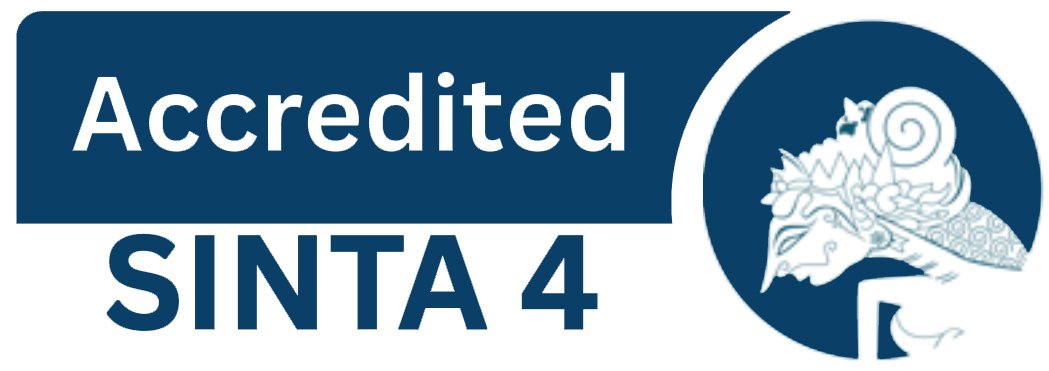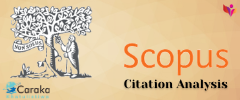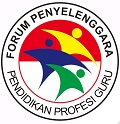Improving the Cooperation Attitude of Grade V Students Through the Application of Problem-Based Learning Model in Pancasila Education Subjects
DOI:
https://doi.org/10.22460/jpp.v4i1.27303Keywords:
Cooperation Attitude, Problem-Based Learning, Pancasila EducationAbstract
This class action research aims to improve the cooperation attitude of fifth-grade students through the application of the problem-based learning (PBL) model in Pancasila education subjects. This research employs a class action approach and utilizes both qualitative and quantitative methods. The design of this study provides two cycles, and each cycle consists of several stages, namely planning, observation or action, and reflection. The results of this study indicate that (1) before implementing the problem-based learning (PBL) model in Pancasila education, the cooperation attitude of fifth-grade students at SDN Mangunsari 02 was measured at 51%, which falls under the “less” criteria. (2) After cycle I, grade V students at SDN Mangunsari 02 showed an increased cooperation attitude in learning Pancasila education, reaching a percentage of 73% with “sufficient” criteria. (3) After the second cycle, fifth-grade students at SDN Mangunsari 02 showed an increased cooperation attitude in learning Pancasila education, reaching 86% with the criteria “Good.” So that the class assessment was stopped in cycle II because it had reached the success indicator with a minimum percentage of 80% with “Good” criteria. It can be seen that there is a significant increase between the percentage value before action and after action, and it can be concluded that the problem-based learning (PBL) learning model can increase the attitude of cooperation in pan education subjects.
References
Hadaina, N., & Astawan, G. (2021). Instrument of kindergarten group b children's cooperation ability. Journal for Lesson and Learning Studies, 4(1), 8–12.
Hidayah, M., Madiun, U. P., Profesi, P., & Prajabatan, G. (2024). Problem based learning (pbl) model with discussion method as an effort to improve student cooperation (for class x-6 students of SMAN 2 Madiun, Even Semester of the 2023/2024 Academic Year). 1, 255–262.
Junita, A., Pentana, S., & Sitorus, I. S. (2022). Work experience as a mediator of the influence of teamwork on employee work effectiveness. DIALEKTIKA: Journal of Economics and Social Sciences, 7(2), 168–179. https://doi.org/10.36636/dialektika.v7i2.1307
Kharomah, U. F., & Hardini, A. T. A. (2019). Improving thematic learning outcomes of grade iii students with the problem based learning model assisted by pandudewan media. Scientific Journal of PGSD FKIP Universitas Mandiri, 27(2), 58–66.
Khusnati, Z., Dewi, N. K., Susi, T., Wati, A., Jl, A., Budi, S., Kota, N., & Timur, J. (2024). Building national character: integration of pancasila values through pbl learning in class v of SDN Kertobanyon Universitas PGRI Madiun, Indonesia SDN Kertobanyon, Indonesia effectively and interestingly for students ( Ningrum et al. 2023; Rifai et a. 2(4).
Maulida, Y. N., Eka, K. I., & Wiarsih, C. (2020). Application of problem based learning model to improve critical thinking skills and cooperation attitudes in elementary schools. MUKADIMAH: Journal of Education, History, and Social Sciences, 4(1), 16–21. https://doi.org/10.30743/mkd.v4i1.1521
Ningtyas, A. W., & Ratnasari Diah Utami. (2024). Improving cooperation attitudes and learning outcomes using problem based learning model assisted by audio visual media. Cendekiawan, 6(1), 42–53. https://doi.org/10.35438/cendekiawan.v6i1.429
Patimah, S., & Kelana, J. B. (2023). Pengembangan bahan ajar menggunakan model problem based learning berbantuan aplikasi powerpoint untuk meningkatkan kemampuan pemahaman konsep matematika pada siswa kelas IV. Jurnal Profesi Pendidikan, 2(1), 72-84.
Putri Faradila Apriliyanti, Siti Rochmiyati, E. N. D. (2024). Proceedings of the national seminar on teacher professional education improving social skills in ppkn learning through the project based learning method. 3(1).
Rubianti, T., Priyatni, T., & Supriati, N. (2019). Application of problem based learning model to improve elementary school students' understanding of mathematical concepts in grade V. Collase, 02(02), 82–89. https://doi.org/10.22460/jpp.v3i2.25432
Wulandari, Agustini, F., Sukamto, & Mariyatun, S. (2023). Application of problem based learning model to improve the attitude of cooperation of grade v students in science learning. Didactics: Journal Scientific PGSD STKIP Subang, 9(1), 858–867. https://doi.org/10.36989/didactic.v9i1.750
Downloads
Published
How to Cite
Issue
Section
License
Copyright (c) 2025 Izzah Millati, Agustina Tyas Asri Hardini

This work is licensed under a Creative Commons Attribution-ShareAlike 4.0 International License.
Authors who publish with the Journal Pendidikan Profesi (JPP) agree to the following terms:
- Authors retain copyright and grant the journal the right of first publication with the work simultaneously licensed under a Creative Commons Attribution License (CC BY-SA 4.0) that allows others to share the work with an acknowledgment of the work's authorship and initial publication in this journal.
- Authors are able to enter into separate, additional contractual arrangements for the non-exclusive distribution of the journal's published version of the work (e.g., post it to an institutional repository or publish it in a book), with an acknowledgment of its initial publication in this journal.
- Authors are permitted and encouraged to post their work online (e.g., in institutional repositories or on their website) prior to and during the submission process, as it can lead to productive exchanges, as well as earlier and greater citation of published work. (See The Effect of Open Access)
Similar Articles
- Yanuar Rafindo, Puspa Dianti, Laili Linda Hartati, Application of ICT-Based Problem Based Learning Method as a Learning Innovation for Pancasila Education to Improve Learning Outcomes of Class VII D Students of SMPN 51 Palembang , Jurnal Profesi Pendidikan: Vol. 4 No. 1 (2025): June
- Oky Prayogi, Ryan Dwi Puspita, Implementation of Constructivism-Based Game-Based Learning Model in Science Learning for Grade IV , Jurnal Profesi Pendidikan: Vol. 4 No. 1 (2025): June
- Enur Nurmawati, Meningkatkan Motivasi dan Hasil Belajar Matematika Peserta Didik Kelas VII Melalui Penerapan Model Pembelajaran Problem Based Learning , Jurnal Profesi Pendidikan: Vol. 3 No. 1 (2024): June
- Paulina Sri Fajar Br. Aritonang, Rika Amelia, Rizky Afianto, Salsabila Amalia, Aflich Yusnita Fitrianna, Penerapan Problem Based Learning (PBL) dalam Meningkatkan Kemampuan Berpikir Kritis Siswa di Sekolah , Jurnal Profesi Pendidikan: Vol. 3 No. 2 (2024): December
- Kurnia Akbar, Citadewi Aditya, Lathifah Rizki, Nelly Ade Karisma, Selvi Novitasari, Widya Sulistia, Yulianti Yulianti, Penerapan Model Problem Based Learning Berbantuan Komik Digital untuk Meningkatkan Pemahaman Konsep Matematis Siswa pada Materi Perkalian Pecahan di Kelas V Sekolah Dasar , Jurnal Profesi Pendidikan: Vol. 3 No. 2 (2024): December
- Julia Julia, Umi Chotimah, Tyas Masito Mutiara, Enhancing Learning Motivation of Grade XI.9 Students Through Zep Quiz Media in Civics Education at SMA Negeri 3 Palembang , Jurnal Profesi Pendidikan: Vol. 4 No. 1 (2025): June
- Luviani Sri Rezeki, Trisna Nugraha, Penggunaan Model Project Based Learning Berbasis Socio Scientific Issues untuk Meningkatkan Kemampuan Berpikir Kreatif Siswa Kelas IV Sekolah Dasar , Jurnal Profesi Pendidikan: Vol. 3 No. 2 (2024): December
- Asih Martiasari, Jajang Bayu Kelana, Peningkatan Pemahaman Konsep Matematika Menggunakan Model Pembelajaran Problem Based Learning Berbantuan Media Manipulatif Untuk Siswa Sekolah Dasar , Jurnal Profesi Pendidikan: Vol. 1 No. 1 (2022): June
- Ayu Erika Puspasari, Penerapan Model Problem Based Learning Berbantuan Geogebra Classroom Untuk Meningkatkan Motivasi Belajar Peserta Didik , Jurnal Profesi Pendidikan: Vol. 1 No. 2 (2022): December
- Risma Nuriyanti, Susilawati, Deceni Amelia, Abih Gumelar, The Effect of Ethnolinguistic-Based Experiential Learning Model on Critical Thinking Abilities of PGSD Students , Jurnal Profesi Pendidikan: Vol. 4 No. 1 (2025): June
You may also start an advanced similarity search for this article.
















